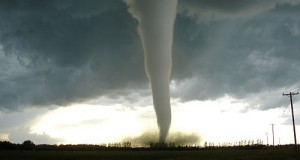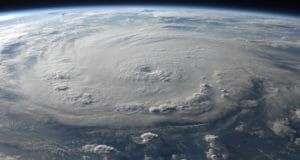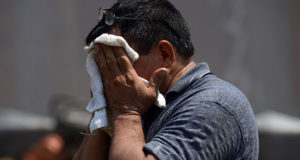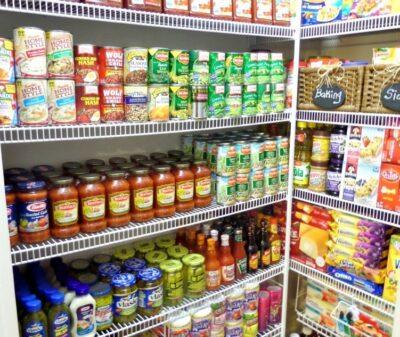
Image source: bemyguestwithdenise.com
The prepping movement seems to be growing by leaps and bounds. While there are no accurate figures about how many people in the United States identify themselves as “preppers,” estimates range right around 3 million people. A more accurate idea might come from looking at how many new prepping websites there are and how many new businesses which cater to those with a survivalist mentality. Why, even mainstream retail giants like Costco and Sam’s Club are carrying prepackaged survival food.
It’s clear that the United States is preparing for something; although opinions vary considerably about what it is that we are preparing for. Some are looking no farther than a disastrous weather event, while others are predicting the end of life as we know it and a return to simpler times.
Regardless of what is being said or who is saying it, it’s clear that many people are getting nervous; nervous enough to do something about it. This “new” movement may actually be changing the way America is thinking in a rather fundamental way. Whether this fundamental change will affect other parts of the American way of life is yet to be seen.
While we tend to think of the prepping movement as something new in America, I have to say that it really isn’t. Just a few short years ago we were faced with the potential of the Y2K disaster. Nobody seemed to know what was going to happen when all our computers rolled over into the new millennium. The concern for that unknown pushed people to stockpile food, water and other supplies, so that they could survive the loss of computer control for our infrastructure and all that such a widespread loss would entail.
Of course, the Y2K thing didn’t turn out all that bad and most of us didn’t notice it anywhere near as much as we noticed the ball dropping in Times Square at midnight. Nevertheless, had things gone anywhere near as bad as some of us predicted, the only ones who would have survived in anything near comfort were those who had bothered to prepare.
I’ve been a prepper for just about 40 years, ever since I was in high school. Back then, our biggest concern was thermonuclear war. I remember reading a number of novels which talked about surviving in a post-war scenario and decided that I was going to be one of those who were ready to survive. Together with some friends, I made plans to head into the Colorado Rockies whenever Washington pushed the button.
Back then we weren’t known as “preppers,” “but survivalists.” As far as mainstream society was concerned, we were just a bunch of kooks who were building bunkers in the wilderness, so that we could survive the nuclear holocaust. They brushed us off with their condescending remarks, much like the media of today does with today’s preppers.
Children during the Cold War were taught to “duck and cover” in the case of a nuclear attack. Fallout shelters were designated in schools and other public buildings. In some cases, they were even stocked with government supplies of food and water, to make sure that people could survive.
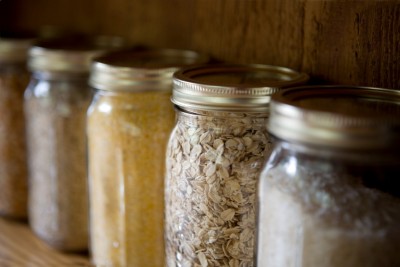 But prepping didn’t even start with the Cold War; it goes back even farther than that. I grew up on the East Cost, just across the George Washington Bridge from New York City. The house I grew up in was built sometime in the early 1800s. Even so, when World War II started, the owners added a bomb shelter (read “bunker” in our modern lexicon) and stocked it so that they could survive a Nazi bombing of our eastern seaboard.
But prepping didn’t even start with the Cold War; it goes back even farther than that. I grew up on the East Cost, just across the George Washington Bridge from New York City. The house I grew up in was built sometime in the early 1800s. Even so, when World War II started, the owners added a bomb shelter (read “bunker” in our modern lexicon) and stocked it so that they could survive a Nazi bombing of our eastern seaboard.
This was not uncommon back then, especially for people of means. While today’s prepper movement is mostly a middle-class movement, it seems that in those days it was something that the upper crust participated in, moreso than the common people. Maybe that was because they had the money to build the bunkers and stockpile the supplies. You can be sure that even today there are many wealthy people who have unadvertised bunkers beneath their homes.
We can’t even say that prepping started with those bomb shelters of World War Two’s era. The pioneering days of the westward expansion of the United States was filled with preppers as well. They would gather food and firewood during the summer, storing their food in an underground bunker known as a root cellar. In some parts of the country, that bunker served double-duty as a tornado shelter, as well. But even if they didn’t get any tornadoes, their prepping was necessary so that they could survive an annual natural disaster called … winter.
That style of prepping was founded very early here in these United States — all the way to the coming of the Mayflower. We even celebrate those early preppers every year on Thanksgiving, in honor of their celebration in which they gave thanks to God for having successfully prepared to survive the winter.
Prepping for winter has a very long history, going back so far that there really isn’t any way of documenting it. The American Indians were known preppers, creating jerky and pemmican to help them make it through the winter. More than 500 years ago the Basques created salt cod as a means of prepping. In fact, all of our modern methods of food preparation, except for freezing, came from the desire of people around the world to prepare for leaner times.
With a history of over 500 years, it’s safe to say that the “modern” prepping movement really isn’t all that modern after all. Actually, it’s a return to the ways of our ancestors. A return to self-sufficiency rather than government dependency. A return to taking charge of our own lives and futures, so that come what may, we will be ready to face it.
When non-preppers make fun of us, they are saying in essence that they think that humankind has evolved to the point where we have overcome nature, overcome disasters and overcome problems. Maybe they should take a look around and talk to the victims of Hurricane Katrina or Hurricane Sandy. Maybe they need to take the blinders off of their eyes and see what kind of shape the country is in, as well as the wider world around us. Maybe it’s time for them to become preppers, too.
Sign up for Off The Grid News’ weekly email and stay informed about the issues important to you
 Off The Grid News Better Ideas For Off The Grid Living
Off The Grid News Better Ideas For Off The Grid Living


